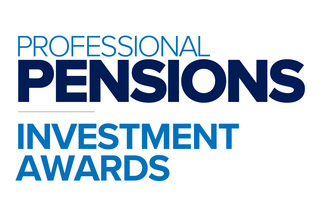In the second of a three-part series on choosing asset managers, Jonathan Stapleton speaks to Richard Butcher and Roger Mattingly about how trustees shortlist managers.
- Trustees should start the process of choosing an asset manager with the end in mind
- The input of consultants is vital
- Managers should take care to tailor RFPs to the trustee board they are writing for and keep submissions both brief and simple
- Site visits are seen as 'cosmetic' and 'artificial'
The panellists

Jonathan Stapleton
Editor
Professional Pensions
Jonathan is editor-in-chief of Professional Pensions. He joined PP in July 2001, launched PP Online in 2006, became editor in 2009, launched Workplace Savings & Benefits in 2012 and became editor-in-chief of both brands in 2014.

Richard Butcher
Managing director
PTL
Richard Butcher has been involved in scheme governance since 1985 and joined PTL in 2008, becoming managing director in 2010. He is a fellow of the Pensions Management Institute and is on the organisation's council. In 2017 he was appointed chairman of the Pensions and Lifetime Savings Association (PLSA).

Roger Mattingly
Managing director
PAN Trustees
Roger Mattingly is both managing director of PAN Trustees and a principal of PAN Governance. He has previously served as a main board director of two leading pension consultancies in a career that has spanned more than 30 years He is also a past president of the Society of Pension Professionals.
The debate
Jonathan Stapleton: Traditionally selection processes go from having a longlist, to going out for request for proposals (RFPs), before coming down to a shortlist and going on to the beauty parade. Is that still the broad structure that schemes follow?
Roger Mattingly: Yes, in the main. I think the starting point is the universe of whatever it is that you're looking for in terms of a fund manager and the particular objective you have in mind. The way I tend to operate is that you would then reduce that to a longlist of maybe five or six managers with expert input and ideas. You would then ask them certain, but meaningful, questions that actually have a purpose rather than are just an audit trail. In my view, you would ask - and I feel quite strongly about this - exactly the same questions to all parties, and you provide the exact same information to all parties.
What I find is once those invitations go out, you almost immediately get a phone call saying ‘can we discuss this further?' So you have to make it very clear that if questions are asked, the answers will be shared with all participants. It's absolutely crucial to make sure that it's a level playing field in terms of the candidates for that particular appointment. However, to put it bluntly, some potential candidates can become quite a nuisance, pestering for further information - actually they are in danger of distorting their own chances, which isn't ideal.
But my view is you then reduce the six, and then you maybe give 10 days for them to respond and you then have a shortlist of probably a maximum of three, because if you have fewer than that, one could end up winning it by default should one fail to perform on the day. With three, you obviously reduce that risk.
Richard Butcher: To my mind when you select a manager you're trying to fix a problem. So, you spend 50 minutes deciding what the problem is, and then 10 minutes on the solution, or the answer.
So the starting point on the road to the beauty parade is to spend time looking at what it is that you actually want to achieve. What are you looking for from a fund manager? And it's not until you've answered that question that you should start going shopping because otherwise you're at risk of buying something that doesn't achieve what you want it to.
So, in the context of choosing an investment manager, the questions you would need to answer include what sort of return do you want, what sort of risk are you prepared to take, what's your risk appetite, what sort of duration liquidity do you want and what are you willing to pay?
You may then extend into certain due diligence type matters. How large is this fund? How large is this fund manager? What sort of resources have they got? What sort of leadership?
I find that defining the problem in this sort of way invariably selects your fund managers for you. You may only find one or two or perhaps three fund managers that tick all the boxes for you, so you don't have to go through a longlist process. You're filtering it through the lens of the problem you want solved.
And I have had a beauty parade, or a selection process, where we've started with one candidate. I didn't tell them they were the only candidate, so before I told them they had won, I was able to negotiate over the terms of what we would be settling on, to keep that competitive tension in there. But I am intensely comfortable with having one candidate because I know that candidate will solve the problem that I need fixing.
Jonathan Stapleton: To what extent will investment consultants be doing that work for schemes? Is it a matter of them passing a buy list to the trustee and saying: "Here's your ready-made longlist"?
Roger Mattingly: It does vary and it comes back to the confidence the trustee board have in their investment advisers. If there's a high degree of confidence and reliability - and relationship is one of trust and confidence, there it may be pragmatic to get the advisers to come up with the recommendations. But it does depend on how good that investment consultant is.
Richard Butcher: The investment consultant plays a key part in the process. The key thing is, first of all, they have to help us define what the problem is. Most trustees and boards are outside of their comfort zone - this isn't what they do as their day job - so the investment consultant needs to help us answer questions around return expectation, risk appetite, longevity duration, cashflow and so on. They need to ask the leading questions so we can define what our problem is.
Having helped us to define what the problem is. Then it is a much more transactional process. We expect them to do the due diligence donkey work, and we want them to get under the skin of the asset manager and make sure they aren't going bankrupt, that there isn't any fraud or theft, that they have the right leadership team and so on. In addition, we then rely heavily on their market research.
So if we define that what we want is an equity manager who takes two-thirds of the risk found in a certain index, with a set return characteristic, we accept that consultants are able to go away, put that in their software and come up with a list of fund managers.
Basically, they're there to help us define what the problem is, define the characteristics that we're looking for, then do the due diligence and research to help us come up with a longlist.
Jonathan Stapleton: What are your feelings on the quality of the proposals you get back? What does a strong RFP look like? And what are the most common mistakes that asset managers make?
Roger Mattingly: I think the first thing they need to avoid is a proposal that looks as though it's been cut and pasted from a previous one. I know it may well have been cut and pasted, but it needs to at least look as though it's customised to one particular invitation to tender and one set of trustee needs - every situation is different and it is crucial that asset manager can empathise with what trustees would want to see in response to the questions.
Would I just want a load of technical jargon if it's about cyber security? Or would I want some words that are comforting and maybe having the more technical details included in the appendix.
Sometimes there is a nervousness that, if you simplify things and make them understandable and readable, you're somehow jeopardising how your expertise is conveyed. My view is people that know what they're talking about and have a strong offering are able to make things more straightforward and simple, and not over-engineer the answers and the solution that you're seeking.
Richard Butcher: I look for three things in proposals and there are three things that asset managers most commonly do incorrectly. The three things that I look for are, firstly, brevity - because I don't want to read a 200 page proposal response, I want something short that gives me what I need; secondly I want them to answer the questions - I don't want loads of blather about other stuff; thirdly, I want it to be understandable - I don't want technical jargon, I don't want whizzy language, I just want simple, clear, concise language.
The three mistakes they most often make - they're not brief, they send out huge responses. Secondly, the same with exams - people don't answer the question; they answer the question they want you to ask as opposed to answering the question I want them to answer. Thirdly, they too often use it as an opportunity to showboat. I'm not interested in who you think you are, what I want you to do is answer my questions in a brief and accessible way.
Jonathan Stapleton: As trustees would you expect to read all the RFPs that come back to you or expect investment consultants to do some degree of filtering?
Richard Butcher: Someone needs to manage and do the executive work in relation to the process. It would rarely be the trustee board - more likely the investment consultant or, sometimes, the secretary of the trustees or a sub-committee of the trustees.
Roger Mattingly: Where I chair the trustees, I do feel an obligation to read the responses. But not at the expense of it not being read and commented on by the investment advisers.
Jonathan Stapleton: Once you have looked through the RFPs, how easy is it then to come down to that shortlist? Is that usually a fairly quick process?
Richard Butcher: As I say, my process is to start the process by defining what the problem is. Once you've done that you've self-selected the market. Once you know that they will deliver the return characteristics you want and you've gone through the due diligence filter, then actually, the selection can become almost arbitrary.
Roger Mattingly: I do try and create some objectivity around the process - scoring those on the longlist on performance, process, people and philosophy - enabling those people who are judging and marking the initial longlist to come up with a shortlist. You would then compare notes and scores enabling you to come up with a shortlist.
Once they're on the shortlist they have every chance of winning - so they could have just only made the shortlist but then perform in a very impressive way on the day.
Jonathan Stapleton: One final question: with regards to site visits, are they becoming more common?
Richard Butcher: I don't really see much point in a site visit. It's an opportunity for the fund manager to showboat, but I'm not an informed consumer in respect to many aspects of a fund manager's offering, and wandering around a building looking at people or computers doesn't make my selection more robust. The due diligence flushes out the key things and, as long as they tick the boxes, we don't need to see their trading floor.
Roger Mattingly: Site visits can be quite contrived. So I have made final selections and whittled it down to two and had site visits but I would be comfortable in making a final decision without site visits. There is a cosmetic aspect to site visits - they are very well-scripted and rehearsed and there is an artificiality to them.








